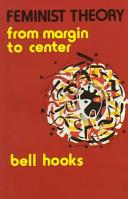p. 12.
Source: Feminist Theory: From Margin to Center (1984), Chapter 1: Black Women: Shaping Feminist Theory, p. 13-14.
Context: Recent focus on the issue of racism has generated discourse but has had little impact on the behavior of white feminists towards black women. Often the white women who are busy publishing papers and books on "unlearning racism" remain patronizing and condescending when they relate to black women. This is not surprising given that frequently their discourse is aimed solely in the direction of a white audience and the focus solely on changing attitudes rather than addressing racism in a historical and political context. They make us the "objects" of their privileged discourse on race. As "objects," we remain unequals, inferiors. Even though they may be sincerely concerned about racism, their methodology suggests they are not yet free of the type of remain intact if they are to maintain their authoritative positions.
Context: Racist stereotypes of the strong, superhuman black woman are operative myths in the minds of many white women, allowing them to ignore the extent to which black women are likely to be victimized in this society and the role white women may play in the maintenance and perpetuation of that victimization.... By projecting onto black women a mythical power and strength, white women both promote a false image of themselves as powerless, passive victims and deflect attention away from their aggressiveness, their power, (however limited in a white supremacist, male-dominated state) their willingness to dominate and control others. These unacknowledged aspects of the social status of many white women prevent them from transcending racism and limit the scope of their understanding of women's overall social status in the United States. Privileged feminists have largely been unable to speak to, with, and for diverse groups of women because they either do not understand fully the inter-relatedness of sex, race, and focus on class and gender, they tend to dismiss race or they make a point of acknowledging that race is important and then proceed to offer an analysis in which race is not considered.
Quotes from book
Feminist Theory: From Margin to Center

Feminist Theory: From Margin to Center is a 1984 book about feminist theory by Bell Hooks. The book confirmed her importance as a leader in radical feminist thought. The "margin" in the title refers to Hooks' description of black women as existing on the margins and their lives hidden from mainstream American society as well as not being part of mainstream feminist theory. The book was published in English in 2015 and in French in 2017.In the Preface to the New edition of the book, Hooks outlines how she wrote the book as a response to the need for theory that took into account gender, race and class. A need that came from the women’s liberation movement being primarily structured around issues relevant to white women with class privilege.In the first chapter Hooks critiques Betty Friedan’s The Feminine Mystique as being a limited one dimensional perspective on women’s reality even if it is a useful discussion about the impact of sexist discrimination on a select group of women, college-educated, middle – and upper-class married white women, namely housewives. Hooks argues that Friedan does not include the lives, experiences or needs of women without men, women without children, women without homes, non-white women or poor women.Hooks uses the term white-supremacist capitalist patriarchy as a lens through which to both critique various aspects of American culture and to offer potential solutions to the problems she explores. Hooks addresses topics including the goals of feminist movement, the role of men in feminist struggle, the relevance of pacifism, solidarity among women, and the nature of revolution. Hooks can be identified in her discussions of these topics as a radical feminist because of her arguments that the system itself is corrupt and that achieving equality in such a system is neither possible nor desirable. She promotes instead a complete transformation of society and all of its institutions as a result of protracted struggle, envisioning a life-affirming, peaceful tomorrow.
“As more and more women acquired prestige, fame, or money from by the ruling capitalist patriarchy.”
Source: Feminist Theory: From Margin to Center (1984), Chapter 1: Black Women: Shaping Feminist Theory, p. 7.
“Class struggle is inextricably bound to the struggle to end racism.”
p. 3 https://books.google.com/books?id=L1WvBAAAQBAJ&pg=PA3.
Feminist Theory: From Margin to Center (1984), Chapter 1: Black Women: Shaping Feminist Theory
Context: Friedan was a principal shaper of contemporary feminist thought. Significantly, the one-dimensional perspective on women's reality presented in her book became a marked feature of the contemporary feminist movement. Like Friedan before them, white women who dominate feminist discourse today rarely question whether or not their perspective on women's reality is true to the lived experiences of women as a collective group. Nor are they aware of the extent to which their perspectives reflect race and class biases, although there has been a greater awareness of biases in recent years. of white supremacy; it is only by analyzing racism and its function in capitalist society that a thorough understanding of class relationships can emerge. Class struggle is inextricably bound to the struggle to end racism.